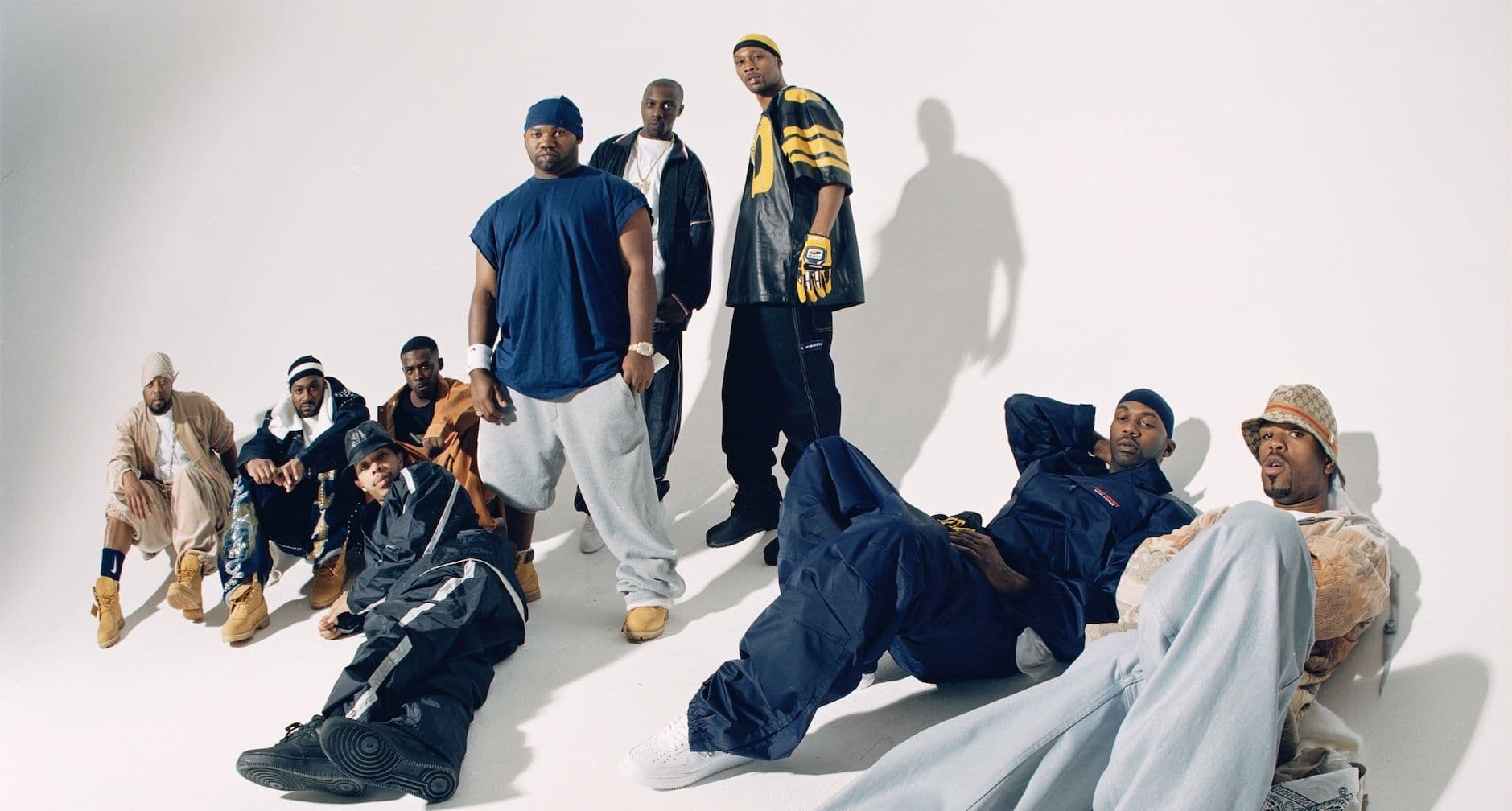2024-07-22
What If: The Flooding of Rza’s Basement
By Jamil Weeks

Wu-Tang is forever. Forming like Voltron in the early 90s, the iconic collective stormed onto the scene with a unique sound blending kung fu martial arts with five percent lessons and raw street life. The architect of the vintage Wu-Tang sound was none other than Rza. From 1993 -1997, he single-handedly produced all the Wu group and solo albums, with some assists from Wu-Tang Productions (4th Disciple, Allah Mathematics, and Tru Masta). Rza in his prime was considered by many hip hop fans as one of the best producers ever. Rza’s work on Enter the Wu (36 Chambers), Return to the 36 Chambers, Liquid Swords, Only Built 4 Cuban Linx, Ironman, and Wu-Tang Forever is one of the best five year runs of a producer in hip hop history. After Wu-Tang released their timeless debut, the plan was for all the members of the group to release their own solo albums. Rza reportedly had stashed away an allotment of beats for each group member and all of them were ready to release their solo debuts in the footsteps of Enter the Wu. However, in an unexplained twist of fate, Rza's studio in the basement of his house would end up flooding in 1994. Mother Nature was cruel to the Wu-Tang Clan as there would be a second flood that would flood Rza’s studio shortly after Only Built 4 Cuban Linx came out. Between the two floods, it is estimated Rza lost between 300 to 500 beats that were intended for the solo albums. Wu-Tang is regarded as one of the greatest groups of all time, but losing so much music from Rza in his prime makes you wonder how the trajectory of their careers was altered.
Despite the initial flood, group members like Ghostface Killah, Gza, Method Man, Ol Dirty Bastard, and Raekwon were still able to release debut albums from ’95 to ’96 that would garner critical and commercial success. Timing is everything, and those artists benefited from being able to release their solo albums at a time when the group’s star was on the rise and their unique sound was fresh. There is no question that the loss of so much music affected the other half of the group, including Masta Killa and U-God. Imagine a Cappadonna album releasing in ’96 with that trademark Wu-Tang sound. Even the Zig-Zag-Zig Allah himself had to have suffered in his career as a solo artist as a result of the studio floods. After all, producers are known for stashing the heat away for themselves. There is no telling how Rza’s legend would be different today if those floods never happened. Rza could have been the Kanye West of the 90’s and known for being more of a dual threat as an emcee/producer than he is regarded today. Wu-Tang could have extended their run at the forefront of rap beyond ’97 if those albums had been released as they were initially intended.

With such a devastating setback for the group, one Wu-Tang member’s legacy was affected the most. The individual in question is none other than the Inspectah Deck. The Rebel INS has some of the most classic verses of the 90s from his verses on Wu-Tang’s “C.R.E.A.M.” and “Triumph”, Gza’s “Duel of the Iron Mic”, and Gang Starr's “Above the Clouds”. Lyrically he is one of the sharpest swords in the Wu-Tang armory. Despite him being arguably the most ferocious emcee in the group, Deck’s career has been mired by misfortune. One example is when his verse was taken off 2pac’s “Got My Mind Made Up” from Pac’s diamond selling double album, All Eyez on Me. Due to the flood and ownership issues with his label, Loud Records, Deck’s debut album remained in limbo years after the launch of Wu’s first album. Deck’s solo LP, Uncontrolled Substance, was not released until 1999, despite being slated for release in 1995. Hip hop was in a much different space by the time 1999 arrived. Biggie and Pac were murdered. Jay-Z emerged as the heir to the New York throne and was gaining traction with Roc-a-Fella. Ruff Ryders had taken over the streets. The South was rising with No Limit and Cash Money Records. Wu-Tang was beginning to move on from the Wu once Uncontrolled Substance dropped. The version we all got to hear ended up being a solid effort, with Deck handling a bulk of production duties himself. The album was a success in that it nearly went gold. However, if the album had dropped during the height of the Wu’s ascendance in the mid-90s, who knows how many more records he could have sold. According to Rza, Deck’s original album would have been on par with Wu classics like Only Built 4 Cuban Linx and Liquid Swords. A Deck album receiving that prime Wu-Tang Productions treatment would certainly have shined a brighter spotlight on his career. If the original vision for Uncontrolled Substance had seen the light of day and was heralded as a classic, Deck’s standing in the group, and rap overall, would have been much higher.
In the end, we will never know how much bigger of an impact Wu-Tang would have had if we were not robbed of hundreds of songs. The group still had an impact with their music in the face of the adversity that would have crushed the careers of lesser talented artists. The Wu emblem is one of the most recognizable brands across the globe. The group boasts classics as a group and as solo artists that are stamped by the culture. The group has become iconic and is able to enjoy selling out big venues worldwide to this day, as evidence of the successful NY State of Mind tour with Nas. However, the loss of so much music during such a pivotal era in hip hop was not only a huge L for Wu-Tang, but also for the culture. Who knows how many potential classics Rza had stored on those floppy disks. The biggest question mark is how much more of an influence would the Wu have had on rap stylistically. The group already made huge impacts with their landmark music deal and brand of production serving as blueprints for rap artists and producers that came after them. If it was not for the floods, Wu-Tang could have kept their Timbaland boots firmly planted on the neck of the music industry for a much longer period. You never know how different the hip hop landscape would be if it was not for a couple of unfortunate freak occurrences. Thankfully, the Wu-Tang Clan has proved resilient despite these almost insurmountable odds. Given the amount of material that was soaked away in the floods, it makes me feel gratitude for the amount of quality music we were blessed to hear from Wu-Tang. Not for one second do I take for granted the large volume of era-defining music that Rza and company graced the culture with during the 90s golden era. Question marks notwithstanding, the Staten Island/Brooklyn coalition unleashed an onslaught of witty unpredictable talent and natural game that will forever stand the test of time.
